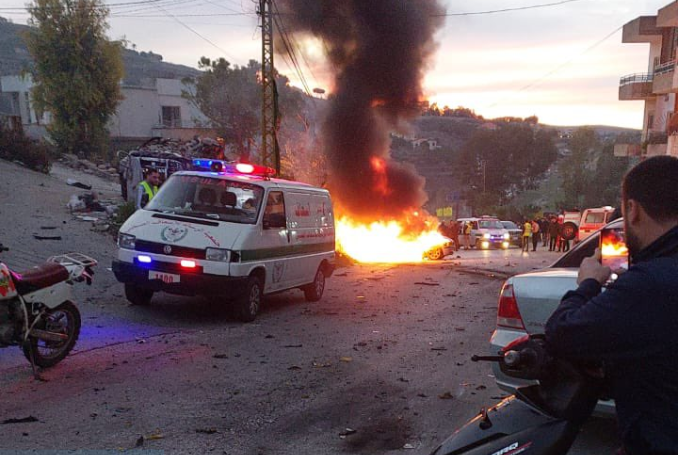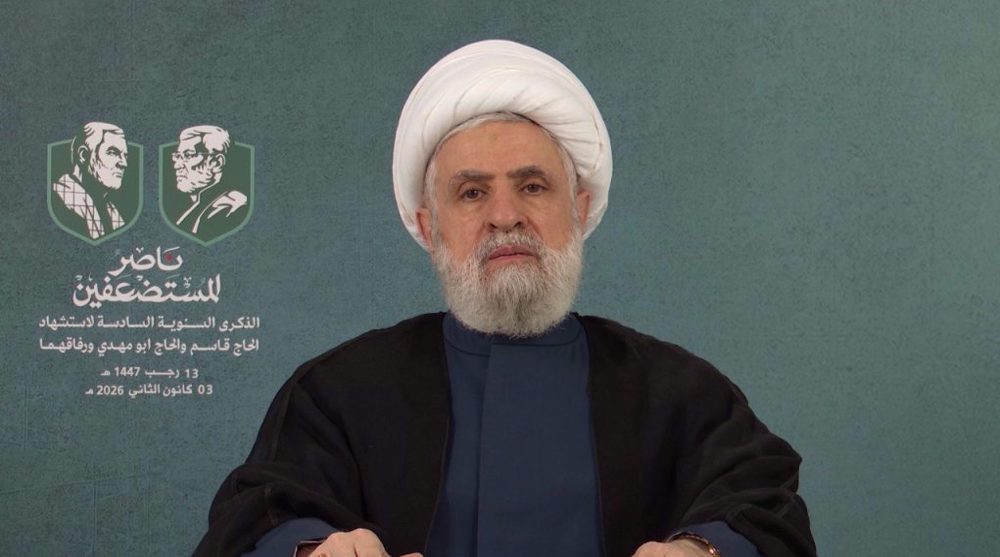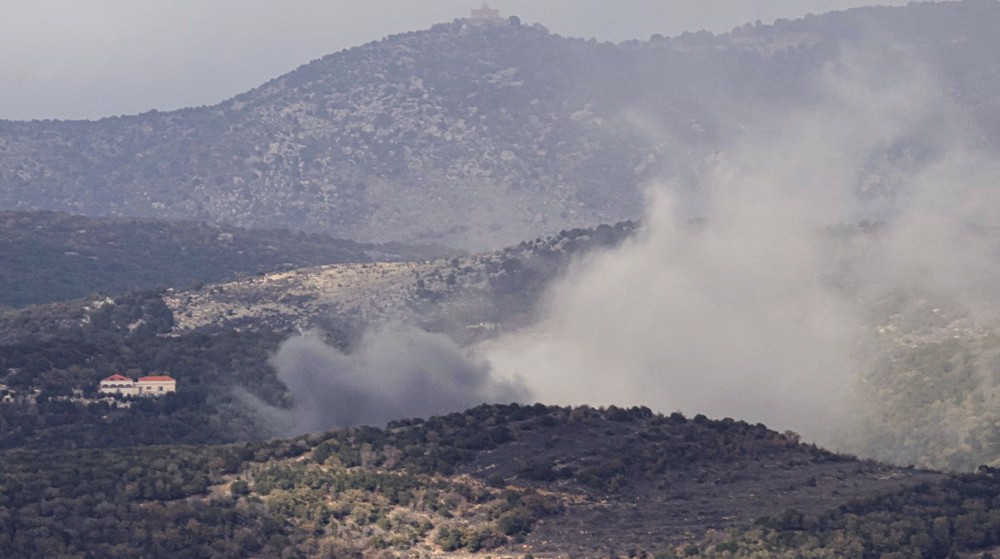Lebanon’s parliament approves government's state of emergency across country
The parliament of Lebanon has approved a state of emergency declared by the now caretaker government, which needs the legal authority to put down riots following a catastrophic explosion that ravaged swaths of capital Beirut and pushed the cabinet to resign.
The 128-seat parliament on Thursday approved a two-week state of emergency imposed by a government, which after the resignation of prime minister Hassan Diab on Monday and several of its ministers, is now in a caretaker status.
A few dozen protesters gathered in front of the parliament to bar lawmakers from entering the building and voting for the measure, but police forces outnumbered them and broke them up.
On August 4, a colossal explosion, the biggest ever to hit the Middle East, killed at least 172 people. Some 6,000 were injured.
Dozens of people are still missing, and at least 300,000 people have been displaced as a result of the huge blast, which leveled the whole port of Beirut and a large section of central capital and turned successive apartment blocks into masses of debris and twisted metal.
A large supply of confiscated explosive material that had been stored in a warehouse at the city’s port for the past six years is suspected to have caused the massive explosion, whose mushroom-shaped cloud has drawn comparisons with the US atomic bombings of Hiroshima and Nagasaki 75 years ago.
A day after the blast, the government introduced a two-week state of emergency. But according to the Lebanese law, when such a measure lasts more than eight days, it requires approval from the parliament.
The state of emergence enables the military to close down assembly points and ban gatherings deemed threats to national security. It also expands the jurisdiction of military courts over civilians.
Furthermore, the army can raid homes at any time and place under house arrest any individual suspected of being engaged in activities considered a threat to security.
During the past several days, hundreds of furious people have rallied in the capital to express their strong dissent, accusing the political leadership of endemic corruption, mismanagement and negligence, and blaming the political elite for the devastating blast.
The rallies partially turned violent as dozens of protesters attacked state buildings, inflicting damage.
On Thursday, security forces were heavily deployed in Beirut, stopping protesters from reaching a conference center where legislators convened, ahead of official visits by French Defense Minister Florence Parly and David Hale, the top career diplomat at the US State Department.
In its first legislative session since the explosion, the parliament on Thursday also approved the resignation of seven legislators, who had resigned since last week over the blast.
Parliament speaker urges formation of new government
Additionally on Thursday, Lebanese Parliament Speaker Nabih Berri demanded that the formation of a new government is sped up.
After months of a power vacuum in the small Mediterranean country, Diab's cabinet had formed in January to combat corruption and mismanagement, and to revive Lebanon’s collapsed economy.
Lebanon's Tripoli port to fill in for ravaged Beirut
Separately on Thursday, Ahmad Tamer, the director of Tripoli port, which is about 80 kilometers north of the capital Beirut, said the smaller port was readying its harbor to temporarily replace that of Beirut.
"The port of Tripoli can stand in for Beirut on a temporary basis, for the time it will take it to be operational again,” he said.
Shortly after the colossal explosion, Lebanon's Supreme Defense Council ordered that the port of Tripoli be prepped for “import and export operations.”
Two smaller ports of Saida and Tyre can also contribute but their capacity is limited and does not allow for bigger vessels to dock.
The small Arab country relies on imports for 85 percent of its food needs. The UN's World Food Program has already warned that the absence of Beirut port could deteriorate an already alarming situation in Lebanon.
Cuba declares national mourning for 32 citizens killed in US raids on Venezuela
Iran: US must release kidnapped Venezuelan president
After US aggression against Venezuela, Mexico could be next: Report
Qalibaf: Protesters must be heard but foreign-linked agitators will be dealt with
VIDEO | German government refuses to condemn US aggression against Venezuela
Venezuela’s acting president calls for peaceful coexistence, dialogue with US
Denmark, Greenland leaders urge Trump to halt takeover threats
Iran pioneers future of wound care with West Asia’s first smart nanocellulose dressing












 This makes it easy to access the Press TV website
This makes it easy to access the Press TV website